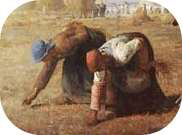Division: After ascribing blessedness to the Lord, the devout Psalmist sings of the light and the firmament, which were the work of the first and second days of creation. (Verses 1 to 6). By and easy transition he describes the separation of the waters from the dry land, the formation of brooks and rivers, and the uprising of the green herbs, which were the produce of the third day. (Verses 7 to 18). Then the appointment of the sun and the moon to be the guardians of day and night commands the poet’s admiration, and so he sings of the fourth day. (Verses 19-23). Having already alluded to many varieties of living creatures, the Psalmist proceeds, (Verse 24 to verse 30) to sing of the life with which the Lord was pleased to fill the air, and sea, and the land; these forms of life were the peculiar produce of the fifth and sixth days. We may regard the closing verses (31-35) as a Sabbath meditation, hymn, and prayer. The whole psalm lies before us as a panorama of the universe viewed by the eye of devotion – a poet’s version of the beginning of Genesis. O for grace to render due praise unto the Lord while reading it.
Verse 1 “Bless the Lord, O my soul. O Lord my God, thou art very great …” with what reverence and holy awe does the psalmist begin his meditation! “O Lord my God, thou art very great.” It is the joy of the saints that he who is their God is a great God.
It is this psalm that lies at the back of the hymn – “O worship the King all glorious above.” The imagery is unmistakable:-
“Oh, tell of His might! Oh, sing of His grace! Whose robe is the light, whose canopy space; His chariots of wrath the deep thunder-clouds form, And dark is His path on the wings of the storm.”
Verse 2. “Who coverest thyself with light as with a garment: who stretchest out the heavens like a curtain.” In comparing the “light” to a robe, the psalmist signifies that though God is in visible, yet his glory is manifest. When it is said that the heavens are a “curtain,” it is not meant that under them God hides himself, but that by them his majesty and glory are displayed, being, as it were, his royal pavilion.
Verse 3. “… who maketh the clouds his chariot: who walketh upon the wings of the wind.” In these words – “he walketh upon the wings of the wind” – there is an unequalled elegance. It is not – he fleeth, or runneth, but he walketh; and that on the very “wings of the wind” – the most impetuous element raised into the utmost rage, and sweeping along with incredible rapidity. We cannot have a more sublime idea of the Deity; serenely walking on an element of inconceivable swiftness, and as it seems to us, uncontrollable impetuosity!
Verses 6-9. “Thou coverest (the earth) with the deep as with a garment: the waters stood above the mountains. At thy rebuke they fled; at the voice of thy thunder they hasted away …” All this is referring to that commanding voice of God that made the mountains rise out of the waters and divided the waters from the dry land in the days of creation. John Gill makes note of the great “precipitance” and “haste” with which those waters fled at the beginning, when God but spoke; and he applies the principle of that event for the good of the believer’s heart. “This is an instance of the mighty power of Christ,” he say, “and by the same power He:-
1) Removed the waters of the deluge, when they covered the earth and the tops of the highest hills.
2) Rebuked the Red Sea, and it became dry land.
3) Drove back the waters of Jordan for the Israelites to pass through.
4) Rebuked the Sea of Galilee when his disciples were in distress.
With equal ease” he says, “can he, and does he:
1) remove the depth of sin and darkness from his people at their conversion.
2) Rebukes Satan, and delivers out of his temptations when he comes in like a flood.
3) Commands off the waters of affliction when they threaten to overwhelm.
